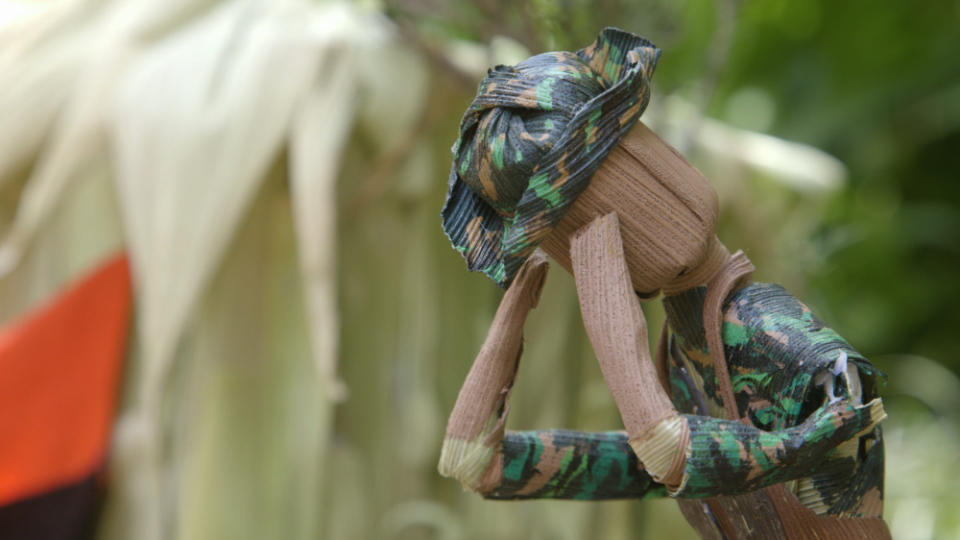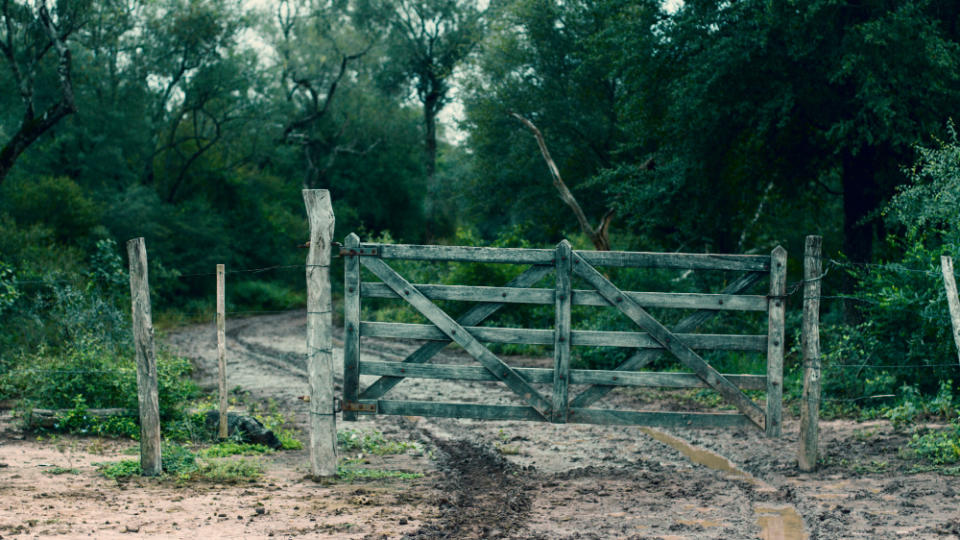Locarno’s Open Doors: New Films from Paz Fabrega, Victor Checa, Aeden O’Connor as a Revolution Builds in Latin American Filmmaking

A revolution is working through Latin American filmmaking. It’s powered by new gen cineastes, educated at top film schools, very often women, who are questioning pretty much everything everywhere all at once, re-representing themselves and questioning what can make up a movie these days.
Locarno’s Open Doors is a case in point. Five takeaways on this year’s lineup:
More from Variety
Recalibration of a Sense of Self
“Three Bullets,” at Open Doors Projects Hub, is made by Dominican Génesis Valenzuela, an alum of San Sebastian’s prestigious Elías Querejeta Zine Eskola, which plumbs the murder of Dominican immigrant Lucrecia Pérez, shot and killed by four neo-Nazis, the same year that Spain celebrated its conquest of Latin America. Valenzuela will come in at the film as she reconstructs her own identity as a “human being/woman/Afro-Caribbean/filmmaker.” “The driving force of this film is the desire for emancipation, both from the constraints of existence and from those of filmmaking,” she has said.
Questioning Cliches, Intertwining Narratives
That could be said to varying degrees and multiple ways of the titles at Open Doors, all from smaller Latin American countries or the Caribbean. “LOA. Kill Your Masters” tells the history of Haiti’s 1791-1804 Revolution, but from the POV of Afro-Caribbean female Vodun empowerment. In Jamaican Gibrey Allen’s “Raised by Goats,” as Jamaica battles for independence, a woman struggles towards freedom and self knowledge. Both “Libertines” and Costa Rica’s “Milky Way” question motherhood as woman’s natural destiny. “I’ve become really interested in stories about women who regret having children,” says “Milky Way” director Paz Fábrega.
Using a Broader Tool Box
“Amidst global concerns such as climate change, sustainability, peace and equality, one topic stands out for discussion: Identity,” says Zsuzsi Bánkuti, head of Open Doors. Filmmakers, moreover, are bringing a much broader gamut of tools to explore that issue, led by genre and animation. To tell the story of Nicaragua’s Contras, for example, in “Pantasma,” Gloria Carrión uses stop-motion animation, creating dry corn leaf small-scale replicas of places and figures, mixed with archival footage, video art and photos, sometimes projected onto the screen, “The Missing Picture”-style.” Peru’s “Libertines” is Kafka-esque fantasy drama, “Last of Kings” a futuristic vampire Western.
New Viewpoints, New Vistas
Valenzuela is exploring “counter narratives,” she says. Directors are also offering new viewpoints. Rae Witshore’s “Eating Papaw on the Seashore,” an 18-minute short, is the first Guyanese’ film to showcase same-sex intimacy between two men where kissing is captured on camera. They’re also showing new vistas, literally, and proud to do so. “Not only is Piura’s Sechura desert a magnificently cinematic landscape with its own vibrant culture, people, and history, it’s a place that has rarely been shown on screen,” says director Victor Checa of the setting of “Last of Kings.”
Promising Discoveries
Fabrega’s 2011 “Agua Fría de Mar” won a Rotterdam Tiger Award. This year’s Open Doors features producers who have worked on Berlin best actress winner “The Heiresses” (Ivana Urizar), San Sebastian 2023 competition contender “Puán” (Alejandra Antequera), Cannes Camera d’Or laureate “Nuestras Madres” (Joaquín Ruano), Malaga-prized “Utama” (Federico Moreira) and “90 Minutes” which scooped a Miami Audience Award (Ana Isabel Martins Palacios). 17 of 18 Project Hub and Producers’ Lab titles, however, will be first or second features. They promise discoveries.
Open Doors Projects’ Hub
“Desidia,” (Leandro Grillo, Bolivia, Chile)
An early project from Bolivia’s Trisomia Cine, founded by Grillo and Alejandra Antequera, a production manager on “Puán.” To shoot in 16mm, set in a rain-drenched Aymara city El Alto, in the Bolivian highlands, following two young friends, schizophrenic Renato (22) and recluse Piotr (24), the film’s disassociation of situations capture the “controlled disorder,” as Grillo puts it, of El Alto, and Renato’s mind.
“Last of Kings,” (“El Ultimo Rey,” Victor Checa, Peru, Germany. Mexico)
Checa’s follow-up to breakout feature debut “Tiempos Futuros,” produced by Bertha Navarro and Sebastián Cordero and picked up by Outsider Pictures, a “coming-of-age Western vampire story,” says Checa, set in a futuristic Peru ravaged by desert storms.

“Libertines,” (“Libertinas,” Leslie Ortiz, El Salvador, Peru)
The first feature from El Salvador’s Leslie Ortiz, Liz, mother of a teen daughter at 32 after an unwanted pregnancy, lives a monotonous life until she discovers the world of theater, falls in love with an actress, and achieves a remarkable metamorphosis in spiritual and physical terms as she reconnects with her true self.
“LOA. Kill Your Masters,” (“LOA: Mata a tus Amos,” Carlos Zerpa, Venezuela, Puerto Rico)
Billed as a low-budget, high-impact animated feature for teens and adults, a historical fantasy from director-producer Zerpa telling an alternative version of Haiti’s extraordinarily brutal 1791-1804 Revolution against slavery, this time round told from a feminine POV as being powered by a teen girl and supernatural African vodun spirituality. Set up at Mecha, Zerpa’s creative co-operative based in Caracas and Cali.
“Pantasma,” (Gloria Carrión, Nicaragua, Costa Rica, Honduras)
A revisionist stop-motion view of Nicaragua’s Contras, based on the memoirs of Félix Vigil, a disillusioned Sandinista, told as a hybrid doc feature by his wife Carrión, after she was forced into exile in 2021. “This film will reveal the powerful and untold story of the Contras for the first time, building a more diverse memory of this romanticised war,” Carrión says.

“Raised By Goats,” (Gibrey Allen, Jamaica)
Jamaica, 1962. Devastated by her husband’s death, young widow Trudy escapes to its Blue Mountains and falls for a taciturn goatherd imbued by the highlands’ mysticism. “Set in the natural beauty and sounds of Jamaica’s Blue Mountains, the film tells a rich and layered love story that shines even under the heavy veil of colonialism,” says Allen.
“Three Bullets,” (“Tres Balas,” Génesis Valenzuela, Dominican Republic)
Mixing colonial history, displacement and criminal investigation, a hybrid fiction-doc-come-essay reconsidering the life of Lucrecia Pérez, a Dominican immigrant in Spain brutally murdered in 1992 by four neo-Nazis, the same year that Spain celebrated its conquest of Latin America. Made by Valenzuela, to “explore the diaspora experience and dislocate the grand narrative of history,” she says.
“Milky Way,” (“Via Lactea,” Pax Fabrega, Costa Rica)
The next from Fábrega, Costa Rica’s best known auteur after 2010’s atmospheric and unsettling “Agua Fría de Mar.” In “Milky Way,” after her mother’s death, Alicia returns to the city to finish her studies and discovers her daughter, forced to accompany her, doesn’t really figure in her life plans. “A critique of the nuclear family, an involved, hopeful search for new ways of looking at old problems,” says producer Federico Moreira.
Producers Lab
“Maneki Neko,” (Prod: Verónica Haro Abril, Abril Films, Ecuador)
Production head at Ecuador’s Abril Films, Haro will be at Locarno to push Sarahí Echeverrí’s “Maneki Neko,” selected for Ventana Sur, plumbing the complex relationship between a mother and her daughter after a violent event, narrated from the POV of the girl and her best friend.
“Sun Falls,” (“Cae el Sol,” Prod: Ana Isabel Martins Palacios, Pulsar Cine, Honduras)
At Locarno with “Sun Falls,” re-teaming Martins Palacios with director Aeden O’Connor Agurcia, after their “90 Minutes,” a 2020 Miami Intl. Film Festival Audience Award winner, and one of the key titles at this year’s Open Doors, already drawing co-production support from Mexico’s Marthfilms, Guatemala’s Cine Concepción and Norway’s Merfilm. “‘Sun Falls’ will paint a portrait of modern day Honduras from the inside out, giving audiences a glimpse into the elements that create massive migrant caravans,” says Martins Palacios.
“The Star,” (“La Estrella,” Prod: Daniela Muñoz Barroso, Estudio ST, Cuba)
Madrid and Havana-based, Estudio ST’s Muñoz Barroso aims to produce Cuban cinema of international scope with an experimental edge. One case in point: Locarno banner project “The Star.” A doc feature fantasy mix, it turns on a young Cuban who dreams of escaping his remote ship breaking yard on Cuba, mixing downbeat symbolic Cuban reality, high seas adventure, genre tropes, myth and the swamps of Florida.
“The Scent of Walls,” (El Olor de las Paredes,” Prod: Carlos Ormeño Palma, La Fiebre Films, Peru)
The feature debut of battling Peruvian LGBTQ director-producer Ormeño Palma, about Ivan, 30, a photo-journalist, who sets out to find the father who abandoned him as a child, discovering his mother’s secrets and his father’s true identity. “This film is a journey of self-identity within the dreams of the Peruvian elderly LGBTIQ+ community,” Ormeño Palma told Variety. “It will be the voice of our community’s oldest survivors who still suffer discrimination and oblivion from their families and the state.”
“La lengua del agua,” (Prod: Gregorio Rodríguez, Casa Latina Films, Dominican Republic)
Jofris is the last speaker of his indigenous language, after fleeing his community many years ago, his grandmother manifests in dreams and asks him to return. A doc feature set up at Rodríguez’s Casa Latina, aiming to co-produce impactful social-issue movies between Latin America and the Caribbean. “La Lengua del Agua” is co-produced with Alamar Films (Venezuela) and Hutong Productions (France).
“Belly Up Trout,” (“Trucha Panza Arriba,” (Prod: Joaquín Ruano, Cine Concepción, Guatemala)
Executive producer-film director at Cine Concepción, one of Guatemala’s main production mainstays behind Cesar Díaz’s 2019 Cannes Camera d’Or winner “Nuestras Madres,” Ruano will bring to Locarno “Belly Up Trout,” the sophomore outing of Sebastián Lojo, whose “The Ghosts” premiered in the Bright Future Competition at 2020’s IFF Rotterdam. An exploration of hyper-masculinity, it’s set at a trout farm deep in Guatemala’s rainforest.
“Je m’appelle Nina Shakira,” (Dir-Prod: Samuel Suffren, Kitfilms, Haiti)
One of Open Doors’ buzz projects, planned as Suffren’s debut feature as a director, an adaptation of “The Immortals,” the first fiction book of celebrated Haitian writer Mackenzy Orcel. The film focuses on Shakira, 16, a young prostitute who lives for the love of books and starts writing her first novel: an autobiographical take on her vision of the world.
“Bajo las banderas, el sol,” (Prod: Ivana Urizar, Cine Mio)
A doc feature plumbing Alfredo Stroessner 1953-1989 dictatorship in Paraguay based on 80 hours of archive footage found around the world. At Locarno, Urizar took producer credits on “The Heiresses” and “Eami,” a 2022 Rotterdam Tiger Award winner. “Bajo las Banderas” is her first project as its main producer.
Open Doors Screenings – Directors’ Club Feature Film Directors
“98 Seconds Without Shadow,” (Juan Pablo Richter, Bolivia)
Produced by Bolivia’s Pucara Films, an off-beat coming of age second feature from Richter (“The River”) set in ‘80s Bolivia as the cartels move in, which bowed at Tallin Black Nights Young Cinema Competition. Habanero Film Sales handles world sales. “Not every day we see a coming-of-age from Bolivia, even more one with a twist of fantasy, drug dealers, a spiritual leader & with Geraldine Chaplin in the cast,” notes Habanero head Alfredo Calviño.
“Autoerotic,” (“Autoerótica,” Andrea Fernanda Hoyos Valderrama, Peru)
Welcomed by local critics, backed by Tondero, written by Hoyos and pushing the envelope by conservative Peruvian on its sexual candor. Addressing the issue of reproductive rights in Peru.
A coming of age tale by budding auteur Hoyos which rings true in its portrait of Bruna, 15, who begins exploring her sexuality and initiates a liberating relationship, which, however, has consequences.
“Boreal,” (Federico Adorno, Paraguay)
Caught at San Sebastian’s 2020 WIP Latam, and a best picture, director, actor and cinematography winner in Seattle, Adorno’s fiction feature debut, a study of near feudal exploitation in rural Paraguay, as three workers are dispatched for a month to build a barbed wire fence in the desolate El Chaco. One, the youngest, Benjamin, 18, begins to rebel.

“The Preacher,” (“El rezador,” (Tito Jara, Ecuador, Colombia, Spain)
Jara’s follow-up to smash hit “A tus espaldas,” a thriller-come-redemption drama capturing Ecuador, its fanaticism and corruption. “Pescador’s” Andres Crespo plays a con man who persuades the parents of a little girl who says she has visions of the Virgin Mary to turn her into big business.
“Once Upon a Time in Venezuela,” (“Erase una vez en Venezuela,” Anabel Rodríguez Ros, Venezuela)
Venezuela’s 2021 Oscar entry, an “unsentimentally elegiac documentary” and “humane, quietly mournful study of a rural community lost to political and environmental toxicity,” says a Variety review, which established Rodríguez Ros, based in Vienna, as a talent to track.
“The Shape of Things to Come,” (“Tiempos Futuros,” Peru, Mexico, Ecuador, Spain, Germany)
Produced by drivers of the Spanish-language genre – Peru’s Javier Salvador (“Aj Zombies”), “Europa Report” director Sebastián Cordero (“Europa Report,” Guillermo del Toro producer Bertha Navarro, David Matamoros and Ángeles (“The Platform” – a unique Latin American steampunk neo-noir making Checa’s follow-up, “Last of Kings,” an anticipated sophomore outing.
“Me and the Beasts,” (Yo y Las Bestias,” Nico Manzano, Venezuela)
Andrés Bravo, a singer-guitarist, goes solo after leaving his band Los Pijamistas when they agree to play at Suena Caracas 2016, a propaganda festival organized by Nicolás Maduro. As Venezuela’s social crisis rages on, he will come to be accompanied by two mysterious characters clad in yellow: the Beasts. Winning big at Ventana Sur’s 2020 Primer Corte, this is a “portrait of the hopes, fears and illusions of Venezuelan youth seen from a rabidly original perspective,” said Luis Renart, at Bendita, which picked up sales rights.
Best of Variety
Sign up for Variety’s Newsletter. For the latest news, follow us on Facebook, Twitter, and Instagram.

